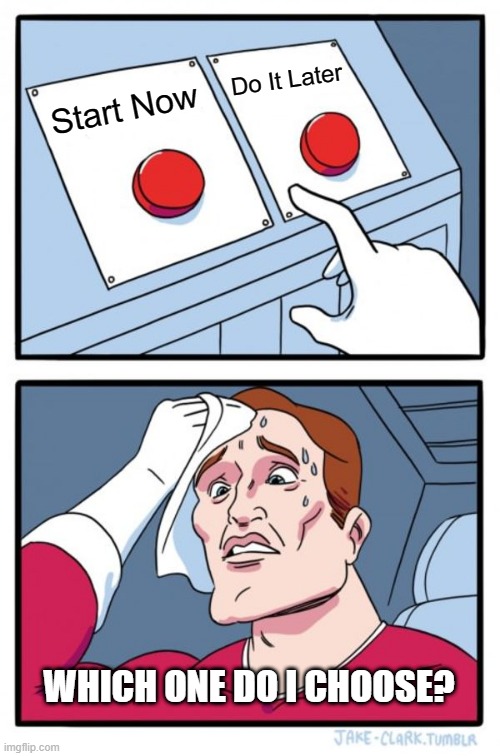Understanding Procrastination
Let’s talk about procrastination. We’ve all been there, right? There’s that important task you need to do, but somehow, you keep putting it off until the last minute. Maybe it’s a paper due in a month, or a project at work that you should’ve started weeks ago. You know it’s important, yet you find yourself doing anything but that task. Why do we do this? Is it laziness? Lack of willpower? Or is there something deeper going on?
The Real Cause of Procrastination
One common reason for procrastination is the fear of facing certain emotions. Think of it this way: If you’re avoiding a task, ask yourself why. Are you afraid it won’t turn out well? Maybe you’re worried about being criticized or judged. These feelings can be overwhelming, so instead of diving into the work, you distract yourself with other things—anything to avoid those uncomfortable emotions.
For example, imagine a student who needs to write a paper. Instead of starting, they might clean the house or catch up on other assignments. When the deadline approaches, panic sets in, and they finally start working, but the result is far from their best. This isn’t about being lazy; it’s about avoiding the fear of failure or criticism.
How to Overcome Procrastination
So, how do you deal with procrastination? One way is to become an observer of your own emotions. When you notice you’re avoiding a task, pause and reflect on what you’re feeling. Is it fear? Anxiety? Try to understand what’s behind your procrastination.
Once you identify the emotion, you can take steps to manage it. For example, acknowledge your fear: “Yes, it’s scary to think this might not turn out well.” Then, give yourself some compassionate advice: “What would I tell a friend in this situation?” This might help you create a plan and start working on the task without being paralyzed by fear.
Perfectionism: The Hidden Trap
Another major cause of procrastination is perfectionism. Many of us want to do things perfectly, and the thought of not achieving perfection can be paralyzing. If we can’t do it perfectly, we’d rather not do it at all. This mindset can be especially crippling when it comes to creative tasks like writing a book or starting a new project. You might spend months—or even years—planning and preparing, but never actually start because you’re waiting for the perfect moment or the perfect conditions.
Getting Real: Contact With Reality
To break free from this trap, it’s important to connect with reality. Ask yourself, “Is it really necessary for this to be perfect?” Often, the answer is no. Start small—write a short story instead of a novel, or complete a simple task instead of a grand project. Once you start, you’ll realize that perfection isn’t necessary, and that doing something is always better than doing nothing.
Finding Meaning in Your Work
Lastly, if you find yourself procrastinating on everyday tasks—like answering emails or completing reports—it might be because you don’t find meaning in them. It’s hard to stay motivated when you don’t see the point of what you’re doing. In such cases, consider whether you can find meaning in your current job or if it’s time to explore other opportunities that align better with your values and interests.
Final Thoughts
Procrastination isn’t something to fight against. It’s a signal from your body and mind that something isn’t right. Instead of pushing through it, take a moment to understand what’s causing it. Is it fear, perfectionism, or a lack of meaning? Once you identify the cause, you can take steps to address it and move forward.
Remember: Understand the cause of your procrastination, and you’ll find a way to overcome it.
Read the article: “Avoid These 10 Major Interview Mistakes to Land Your Dream Job”


Leave a Reply
You must be logged in to post a comment.